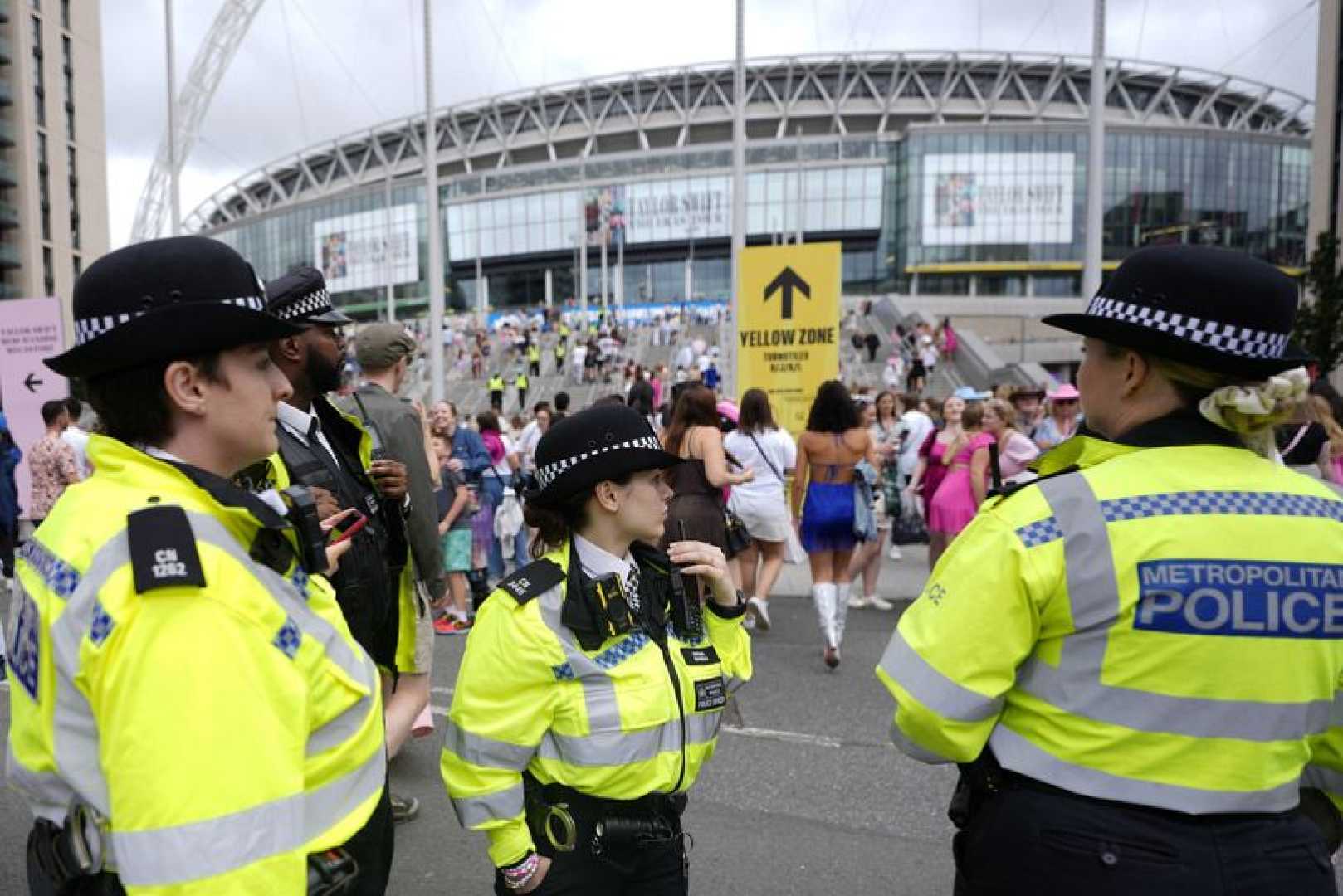News
Controversy Surrounds Police Protection for Taylor Swift’s London Concerts

Ministers are currently facing scrutiny over the decision to provide a police escort for popstar Taylor Swift during her London concerts at Wembley Stadium. Concerns have arisen over potential political intervention after it was revealed that Swift, who performed in August, received a police convoy typically reserved for the royal family and senior politicians.
The request for enhanced security reportedly originated from Swift’s mother and manager, Andrea Swift, who allegedly threatened to cancel the concerts unless a police escort was provided. This demand followed recent terrorist threats in Vienna, which had led to the cancellation of other performances.
Shadow Home Secretary James Cleverly has formally queried his counterpart, Home Secretary Yvette Cooper, on whether any political figures influenced the Metropolitan Police‘s decision. The police initially resisted the request, reportedly necessitating intervention from the Home Office and London’s Mayor Sadiq Khan.
In response to reports circulating in the press, Home Secretary Yvette Cooper attended these concerts as a guest of her husband, Ed Balls, who received the complimentary tickets from Universal Music, not from Swift herself.
A source close to the home secretary insists that all operational decisions regarding the popstar’s security were independently made by the police. They emphasized, “All operational decisions were made by the Metropolitan Police and they do not discuss security arrangements.”
The topic has sparked political debate, with Tory MP Stuart Anderson expressing his dismay via social media, describing the attendance at the concert by Cooper as “outrageous and raises some serious questions.”
Culture Secretary Lisa Nandy defended the actions, stating to Sky News, “It’s an operational matter for the police, not for the government.” Nandy rejected claims of any political interference, explaining that discussions of this nature were necessary following the Vienna threat and in light of previous attacks, such as the Manchester Arena bombing in 2017.
The Metropolitan Police spokesperson echoed this sentiment, confirming that their decision-making process is based on threat assessments and operational necessity, remaining clear of political influence.












